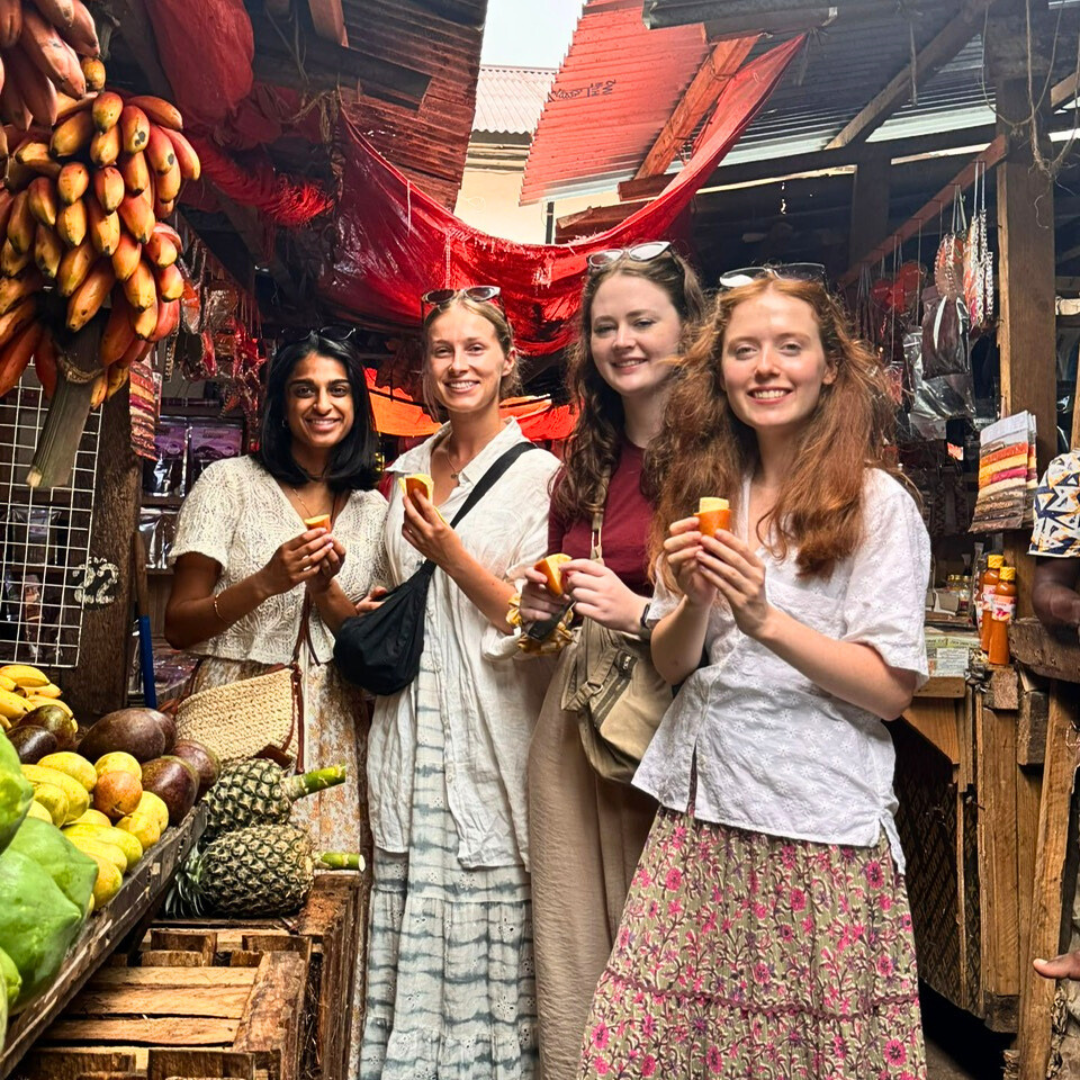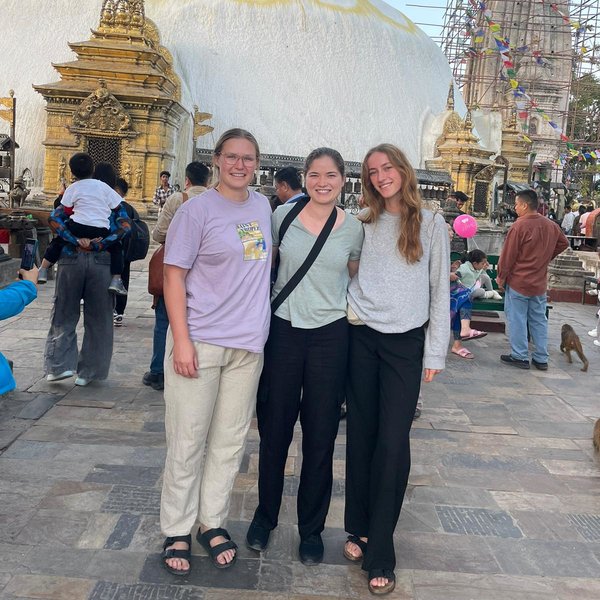Deakin University 2018
 The support I got from Work the World was fantastic, right from the beginning.
The support I got from Work the World was fantastic, right from the beginning.
They were in regular contact, ensuring the process was as easy as possible.
Feeling super nervous when I got off the plane — and after battling the visa line at the airport — a member of the Work the World team greeted me with a huge smile. Tanzania had already begun to feel like home.
As we drove through the streets of Dar es Salaam I got my first glimpses of a world so very different from my own.
The Work the World house in Dar was fantastic. The staff were really welcoming and always made sure we had everything we needed.
They also gave us lots of recommendations of places to go after work and things to do at the weekends.
Living with other healthcare students was great too. I met so many wonderful people who made the more challenging days a lot easier.
Weekends were filled with trips to Zanzibar Island, and to Mikumi National Park for Safari!
We spent afternoons after placement in local markets, singing karaoke on the beach, drinking in local bars, relaxing on beaches, and sightseeing.
We spent our first full day on an orientation around Dar es Salaam and visiting our placement hospital.
We caught the Dala Dala (local minibus) to the hospital, went on a little tour, met our placement supervisors and enjoyed a delicious local lunch.
a little tour, met our placement supervisors and enjoyed a delicious local lunch.
In the evening, we had our first Swahili lesson. It was really helpful for the following day and so much fun!
I spent my first three weeks in OBG, most of which was on the labour ward.
The first few days on the ward were a bit tricky as my Swahili was next to non-existent. But, I found a big smile, some enthusiasm, and a cheerful “Mambo!” each morning went a long way to building trust.
Local midwives and doctors were more than willing to answer any questions I had. If I asked, they talked me through how they undertook some local procedures, including breech deliveries and suturing small tears.
Before I left Australia, I had been told about some of the differences in healthcare that I would see in Tanzania — limited resources, unusual practices, a high patient volume.
I didn’t truly understand this until I stood in the doorway of the OBG department on my first day of placement.
It seemed like total chaos. Patients had no privacy, the wards weren’t hygienic and there were labouring women everywhere!
There were sometimes two or more to a bed. Some women were on wooden benches, some were on the floor. Hospitals that would be considered busy in Australia seemed quiet in comparison.
I quickly came to realise that there was actually a system. It was (very) different to ours, but worked well under the circumstances.
I’ve undertaken many placements in various hospitals at home, but none quite like this.
 I was given so many opportunities to develop my skills, including in many complex situations.
I was given so many opportunities to develop my skills, including in many complex situations.
Thanks to a high volume of births, I assisted with and observed twin deliveries, breech presentations, a cord prolapse, shoulder dystocia, three large PPH, an eclamptic seizure and many neonatal resuscitations.
In my three weeks at the hospital, I cared many for women and assisted in delivering 38 babies.
One big difference between Australia and the UK was that women only came into the labour ward after they were 6cm dilated. They were expected to stay quiet until the baby was born.
There was very little intrapartum monitoring. Often, women came in and delivered before we even had the chance to introduce ourselves or ask them their name.
Then, in most cases, the new mothers showered themselves and moved onto the postnatal ward within an hour of delivering.
Some days on the ward were challenging. We dealt with a number of stillbirths and acutely unwell mothers with big range of health issues, including HIV/AIDS.
However, the other students and staff at the house helped me debrief at the end of the day. I appreciated every opportunity I was given during my time here.
I spent my last week in a village’s rural healthcare clinic. We had a fantastic week!
This was incredibly different to the regional hospital I had been in previously, There were even fewer resources here, and the language barrier between myself and the patients (and sometimes the staff) was a challenge.
I had a wonderful week despite this.
I spent each morning in a different area — the emergency and GP clinic, the laboratory, collecting pathology and testing patients for conditions like malaria, the maternity ward, and the HIV clinic.
I saw a lot of farming and ro ad injuries and learnt about the local pharmacy system.
ad injuries and learnt about the local pharmacy system.
We even held a vaccination day where local women brought in their children to be weighed and immunised.
After placement each afternoon, we did different activities. We spent time at the local primary school, hiked up a mountain, went on a bike ride through the sugarcane plantation, visited a traditional healer or “witch doctor”, and learned some tribal dancing.
I felt blessed to have met and worked with so many wonderful people, and I was humbled by the strength of the women that we cared for.
This placement confirmed for me that practicing as a midwife is exactly what I want to do. The opportunities I had in the hospital showed me that I am more than capable.
My advice to anyone considering placement abroad is, do it! My time in Dar es Salaam was phenomenal and I’ll treasure it forever.







